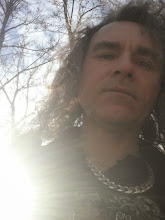And nights.
To A Student:
Your interest, now that I have seen more, seems to be in suggesting that your program include a practical introduction to the business of politics. In a number of ways, that is still very much tied to Mill's utilitarianism.
Nothing wrong with that. But if you want to take things in a more Kantian direction, the way to do that will be by discussing the importance of recognizing, nurturing and directing enthusiasm in Poly Sci students - something which the large-scale management of students tends to deaden, not to mention the treating of politics as a kind of organizational behavior.
Consequently, you'll want to emphasize how the course you propose will entails real-life situations with genuine outcomes and political consequences. The point of this would be for students to experience the feeling of risk which should always be a part of political engagement, something which Mill's system is set up to minimize through careful distribution of responsibilities over the broadest possible field. Also, you'll want to talk about how close work with mentors will help students not just information for reliable sources, but beyond this, develop moral confidence in concerned and competent leaders after whom they can model themselves.
Your interest, now that I have seen more, seems to be in suggesting that your program include a practical introduction to the business of politics. In a number of ways, that is still very much tied to Mill's utilitarianism.
Nothing wrong with that. But if you want to take things in a more Kantian direction, the way to do that will be by discussing the importance of recognizing, nurturing and directing enthusiasm in Poly Sci students - something which the large-scale management of students tends to deaden, not to mention the treating of politics as a kind of organizational behavior.
Consequently, you'll want to emphasize how the course you propose will entails real-life situations with genuine outcomes and political consequences. The point of this would be for students to experience the feeling of risk which should always be a part of political engagement, something which Mill's system is set up to minimize through careful distribution of responsibilities over the broadest possible field. Also, you'll want to talk about how close work with mentors will help students not just information for reliable sources, but beyond this, develop moral confidence in concerned and competent leaders after whom they can model themselves.
Recall that the notion of vocation comes from Kant, and you can read about it in What is Enlightenment? Schelling's emphasis is also in calling, in his case calling being tide to investigation within a particular field. The way a student will feel this necessary enthusiasm and call will have to do with the teacher's ability dramatically to restage the various phases a specific fields historical of development within the classroom.
This is tied to his theory of recapitulation in which the development of the individual should parallel that of the species. In seeing the organic development of a given field of research, the student should feel a sense of wonder and curiosity, which will translate into a desire to research. But of course none of this can ever take place in the student if the discipline itself is presented merely as a loose array of facts and isolate courses. The program, for Schelling, must genuinely be a program: one continuous course of inwardly driven and systematic development.
This is tied to his theory of recapitulation in which the development of the individual should parallel that of the species. In seeing the organic development of a given field of research, the student should feel a sense of wonder and curiosity, which will translate into a desire to research. But of course none of this can ever take place in the student if the discipline itself is presented merely as a loose array of facts and isolate courses. The program, for Schelling, must genuinely be a program: one continuous course of inwardly driven and systematic development.

That said, here is an article on Kant's philosophy of university studies and free inquiry. Notice in it, if you choose to read it, how much emphasis is placed on the universe as an autonomous and self-regulating whole: in other words, the university is an organism. This is precisely why, when we read Schelling, I emphasized the importance of the physical maintenance of buildings and grounds on campus; because the university, like any other organism, has a body which is its expressive vehicle. But enough of that.


No comments:
Post a Comment